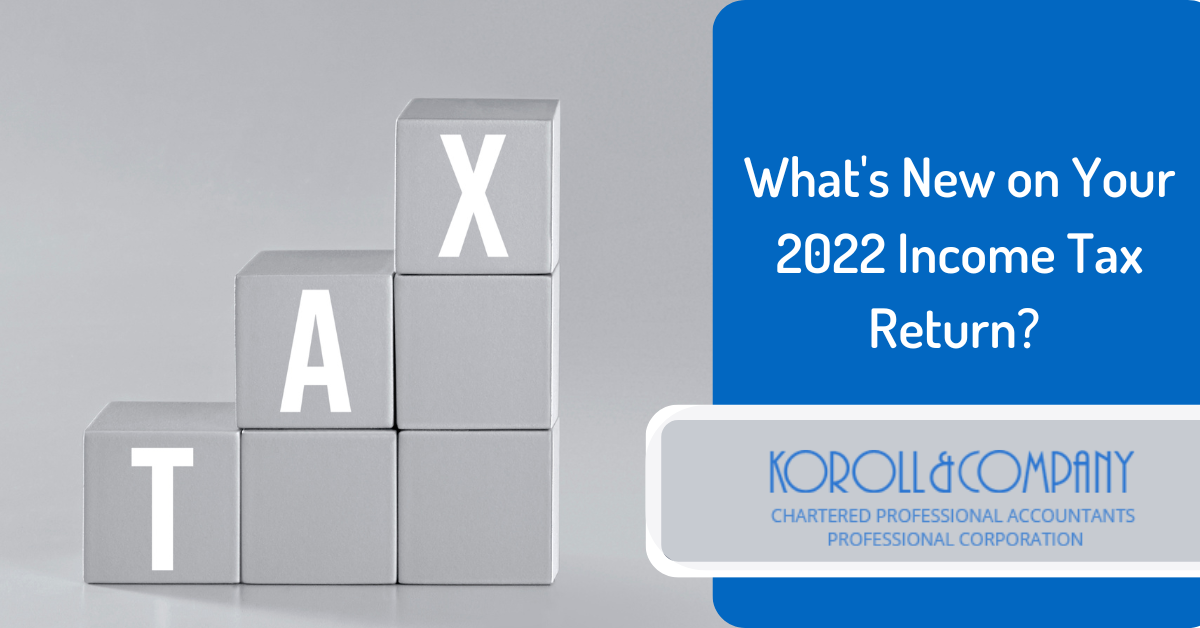 Each year, Canadian taxpayers must complete and file a tax return. As is the case most years, the 2022 return features several changes. This includes changes to income tax brackets and tax credit amounts as a result of inflation.
Each year, Canadian taxpayers must complete and file a tax return. As is the case most years, the 2022 return features several changes. This includes changes to income tax brackets and tax credit amounts as a result of inflation.
However, changes for 2022 also include additional changes. This year, most of the changes to the return are targeted towards specific types of deductions or credits based on the taxpayer's personal or family circumstances. Here are the significant changes you’ll find on the 2022 return form.
Changes To First Time Home Buyers Credit
The First Time Home Buyers Tax Credit (FTHBTC) is a tax credit that provides assistance to first-time home buyers in Canada, as the name suggests. However, the credit may also be available to anyone who did not own a home in Canada during the current year or any of the previous four years (2018, 2019, 2020, or 2021) then purchased a home in 2022.
While the credit was previously $750, in 2022 it doubled to $1,500. The credit is still non-refundable, which means it can only reduce federal tax payable. Any remaining amount will not create or increase a tax refund. You can, however, split the credit between you and your partner if the house was purchased by the both of you.
Changes To Home Accessibility Tax Credit
The Home Accessibility Tax Credit (HATC) is a tax credit that helps Canadian seniors and individuals with disabilities renovate their homes to make them safer and more accessible. The credit can be claimed for home renovation or alteration expenses of an enduring nature that allow a qualifying individual to gain access to, be mobile in or functional within the eligible dwelling. It can also be claimed for similar expenses that reduce the risk of harm to the qualifying individual.
The range of expenses that qualify for the HATC is broad, from grab bars installed in a shower to a full-scale renovation done to permit an individual to live on one floor of a home. Like the FTHBTC, the amount of expenses eligible for the HATC has doubled to $20,000 from $10,000. That means the maximum credit that can be obtained is now $3,000, which is 15% of the qualifying expenses.
The HATC is a non-refundable credit that can only reduce federal tax payable, however, it may be claimed by any family member who lives in the same dwelling as the individual who needed more accessibility. This can be beneficial to caregivers who live in the same home and are in a higher tax bracket due to a high salary or self-employment income.
Changes To Disability Tax Credit
The Disability Tax Credit (DTC) in Canada is available to individuals who have a significant disability or health condition that restricts their daily life. Eligibility for the credit is determined by specific and sometimes complicated criteria, and the individual must receive certification from the CRA. However, the DTC is significant and can reduce federal tax payable by $1,330.50 in 2022, making it worth the work.
One of the requirements for the DTC is the need for "life-sustaining" therapy for a specified period each week. However, a recent tax rule change now considers individuals diagnosed with type 1 diabetes as automatically eligible for the DTC.
This automatic eligibility does not exempt a taxpayer from obtaining CRA authorization. Any claim on the annual return without CRA authorization will be denied.
Unfortunately, because the authorization process to claim the DTC is lengthy, it’s not possible for individuals with type 1 diabetes to claim the DTC on their 2022 tax return by the tax deadline if they don’t already have the authorization.
You can, however, file your 2022 return and then amend it, once you receive authorization. Regardless of whether or not you wish to complete the amendment process for your 2022 return, you should take this time to begin the authorization process, so you can claim the DTC on your 2023 return.
Changes To Medical Expense Tax Credit
Canadians have access to a publicly-funded health care system that covers many medical expenses. But some medical expenses must still be paid out-of-pocket. To offset such expenses, individuals can claim a medical expense tax credit (METC) on their annual tax return.
The list of eligible medical expenses for the METC has been expanded in 2022 to include infertility treatment and surrogacy arrangements. That means expenses paid to fertility clinics and donor banks in Canada to obtain donor sperm or ova or for a surrogate or donor are considered medical expenses. This applies to individuals carrying the child, their spouse or a surrogate mother.
Claims for the METC are limited to eligible expenses exceeding 3% of the taxpayer's net income or $2,479, whichever is less.
These changes aim to help individuals with specific circumstances reduce their federal tax payable and improve their living conditions. For more information on these or other changes on the 2022 tax return, please contact our team today.






